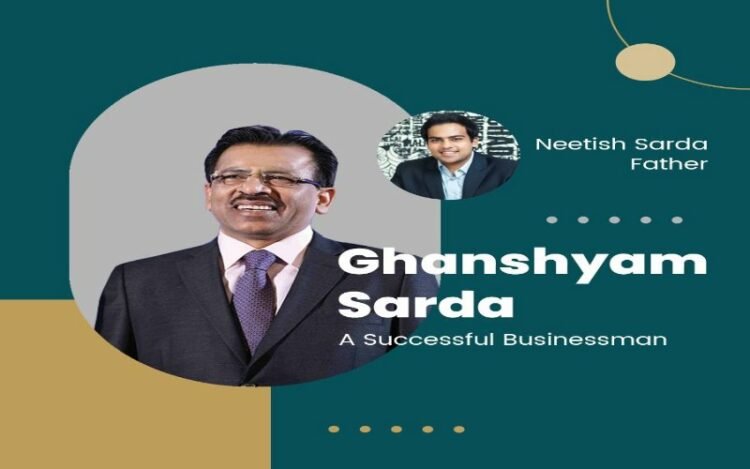Ghanshyam Sarda is a proud father of India’s youngest entrepreneur, Neetish Sarda. Mr. Sarda is an entrepreneurfrom Calcutta who was born in 1959. Ghanshyam Sarda joined the family after graduating from St. Xavier’s College, Kolkata, unaware of his potential. So instead, he focused all of his efforts on the jute industry, which had previously been India’s top export earner.
How did Sarda Group of Industries emerge?
The Sarda Group of Industries is based out of Kolkata and operates all over West Bengal. Currently, the firm operates eight jute mills that produce around 500 tonnes of jute goods every day. Mr. Ghanshaym Sarda has contributed to the state in various ways, including sports, events, public affairs, and business. Several senior government officials have also applauded Sarda’s work.
Investors, employees, and everyone interested in the jute industry at the time lost their money. Ghanshyam Sarda summoned all his power and restored nine dying jute mills from the ruins of a failed drive, and there has been no going back since. The Sarda Group currently owns 20% of India’s resurrected jute industry. Mr. Sarda was determined after that. In 1994 he acquired a closed fish processing market in Raichak, West Bengal. This had previously been leased by the Union Carbide Corporation of the US. The West Bengal government then promoted it with money from the World Bank in 1982. Under the leadership of Ghanshyam Sarda, this unit has turned a new page. It is now the largest seafood processor in West Bengal and one of India’s top quality-certified companies, with HACCP attestation from the US Food and Drug Administration and EU registration.
Also Read: Ghanshyam Sarda’s Sarda Group impact on Social Development
Commitment of the Sarda-duo to Serve
As part of his commitment to serve others, Ghanshyam Sarda was also involved in establishing the Ram Dev Sarda Maha Vidyalaya located in the Purnea district of Bihar. This management college was established by the Chandrakala Devi Charitable Trust of Sarda group. It is motivated by Late Mr. Shiwlal Sarda’s belief in returning to society, nature, and the environment we have gotten from it. The college enrolls around 5K students each year. He has also pledged to invest five crores in a trauma center in Bikaner. As a result, the Rajasthan government is funding an emergency health care program worth Rs.25 crore. This trauma facility will be dedicated to the departed parents of Ghanshyam Sarda.
Mr. Sarda is a brilliant businessman as well as a fantastic parent. He did a tremendous job assisting his son in realizing his ambition and starting a business with all new concepts. He has supported his son’s idea and vision to create fully serviced office spaces to redefine workplace options. Thus, Neetish began his adventure with his father’s guiding ideas. He founded Smartworks in 2016, a top firm in coworking spaces. Smartworks thinks that the infrastructure is one of the revolutionary business components that may help individuals realize their full potential by working better and smarter in a shared place.
Smartworks, led by Neetish Sarda, is a superb example of technology-driven future workspaces from entry to exit. Smartworks guarantees the greatest levels of convenience and safety for its members, whether IoT-enabled conference rooms, digital access, touchless coffee dispensers, digitized parking services, food services, or even sports activity booking. He aspires to alter India’s conventional office environment and reimagine the Indian office experience via hospitality, design, technology, and customer happiness. “We want to call ourselves an office experience firm, not just a workspace supplier,” the youthful executive is constantly heard saying.
Mr. Ghanshyam Sarda is an inspiration to millions of people today. He re-established his status as a fountainhead of constructive ideas and tremendous knowledge with his address on survival instinct at the IIEST College Association’s meeting. “Knowledge isn’t power; knowledge is only potential power,” he argues. It transforms into true power when you take serious action on it. Understanding what to do next is critical, but knowing how to execute it is even more vital.”







